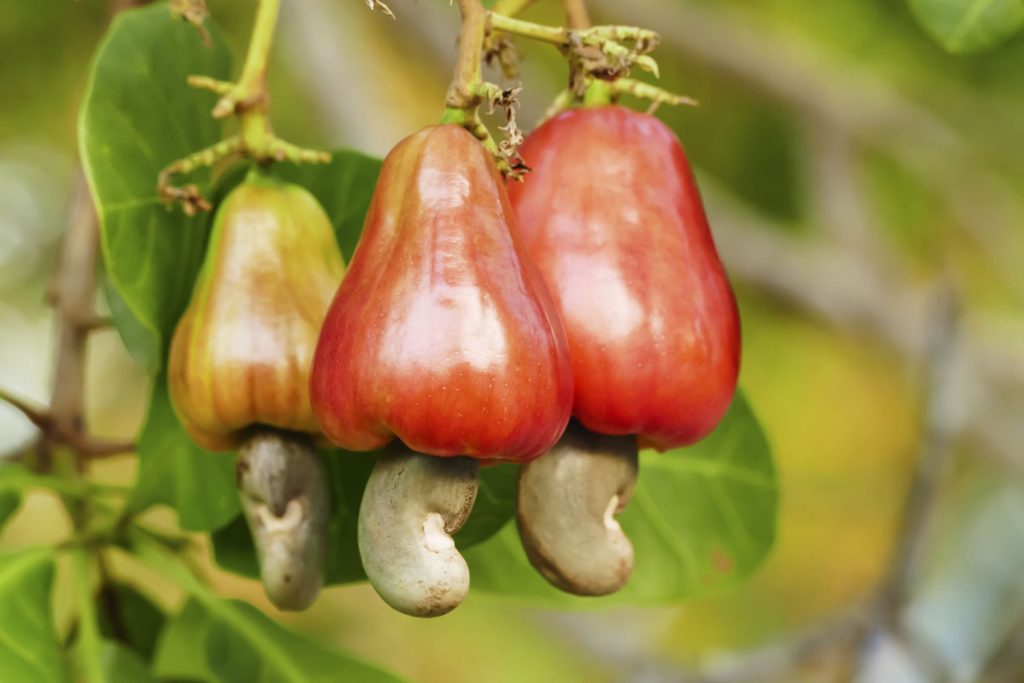The cashew tree’s fruit, highly productive in tropical regions, has long been cultivated and consumed solely for its fleshy part due to the ignorance of the myriad virtues of its seed, potential uses, and transformations, and yet…

And yet, the entire world is aware that it is beneficial both in terms of health and economy! Côte d’Ivoire, a West African country, is officially recognized as the world’s leading producer of cashew nuts. Naturally, it has capitalized on this agricultural asset over the past few years! Why this reminder? What does it have to do with Central Africa?
Regions regularly exposed to temperatures above 15°C are eligible for cashew cultivation. In Chad, commonly referred to as “anacardium,” it thrives, particularly in this country and in the northern regions of Cameroon. Other areas in Cameroon, known for their warm climate, such as the Mbam region with vast untapped expanses, could also integrate the cultivation of these plants, which ideally yield after 2 years and at most after 5 years.
The year-end 2022 assessment of Côte d’Ivoire helps understand the economic damage caused by the underutilization of cashews, even though they are produced in the sub-region. The costs per kilogram of sorted, dried, and free of any undesirable material cashews were set, with the mandatory minimum floor price at the interior store at 340 CFA francs/kg, the mandatory minimum floor price at the factory store at 369 CFA francs/kg, and the mandatory minimum floor price at the port store at 399 CFA francs/kg.
However, Vietnam and India, the two giants in cashew processing, are also the top importers of the raw fruit from Côte d’Ivoire. Importing it in this state is cheaper than the aforementioned costs. Generally, they just shell it to resell at 25 euros per kilogram, 16,375 CFA francs, to other giants who, in turn, transform them into various ready-to-consume products (nothing extraordinary for Africa) and, of course, with certain profits. The missed opportunity is enormous! The machines for shelling are not a luxury, nor is the labor, from cultivation to processing, through production.
It is clear that the economies of countries eligible for cashew cultivation must absolutely rely on it to significantly boost their GDP. Note that cashews generated 363 billion CFA francs in 2022 for Ivorian producers. Better deals were made in 2023, during which small local transformations began to take place.



